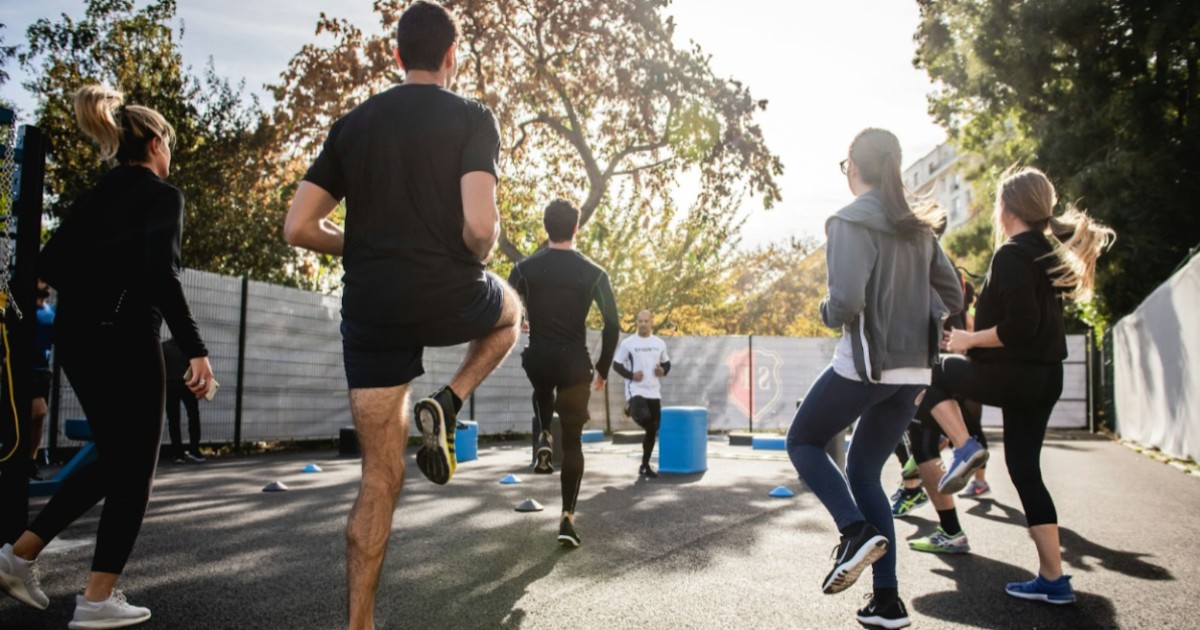The Importance of Movement For Your Health and Wellbeing

We all know that physical movement is essential to keeping our bodies healthy and fit. It improves our health, overall well-being, and quality of life. Human bodies are designed to jump, run, and manipulate objects, among other physical movements. We have made sitting into a habit, and excess sitting is now connected to many well-known diseases and conditions, including back pain, diabetes, hypertension, obesity, cardiovascular disease, and depression.
Throughout mankind’s history, sitting too much has been a relatively new problem. Two hundred years ago, 90% of the world lived in agricultural communities, and people sat for three to five hours a day only when they needed to take a break from work. Nowadays, many people sit for 8 hours a day, and in the case of American citizens, they sit for 13 to 15 hours daily.
Let’s find out the importance of movement for your health and well-being and the benefits of doing regular exercise.
Significance of Physical Movement
Physical movement is essential for a healthy body. Research has been conducted on adults of working age in England, averaging about 9.5 hours per day of sedentary time. Sedentary time increases to 10 hours per day or more for men and women between 65 and 74, and when they go past the age of 75+, people have 11 hours per day of sedentary time. By age 75+, people are sedentary for 11 hours per day.
Sedentary behavior is the term used for people who spend a long time sitting, reclining, or lying down while they are awake. People who engage in this type of behavior require little energy, and it’s totally different from being physically inactive. You can be sedentary and physically active, just like the person who exercises daily, but you can still live a sedentary life.
Many people confuse the exercise with the movement. Exercise is a physical activity that is planned, structured, and repeated and it has the purpose of maintaining and improving our physical fitness. Exercise is a specific type of physical movement and not all physical movements are considered exercise. On the other hand, movement is also a type of physical activity that is done on a regular basis.

Movement is like walking from point A to point B, cleaning the house, ironing the clothes, walking up and downstairs, and so on. Physical movement is about not staying in one position for too long and is essential for physical and mental health. Not moving daily will lower your immunity, decrease motivation, cause lethargy, and severely affect your brain health.
Furthermore, when we don’t move and burn fewer calories, it lowers our metabolism, and our heart becomes weak, which affects our blood pressure and nerve cells. It can also affect mental health, which increases the chances of depression and anxiety.
Mental Health Benefits from Physical Activity
- Anxiety and Stress: Doing exercise daily can decrease the sensitivity to the body’s reaction to anxiety. Furthermore, it can help ease symptoms of other common conditions, such as irritable bowel syndrome.
- Increases New Neurons in the Brain: Exercise helps to increase new neurons in the critical areas of the brain, such as the hippocampus. Research shows that this relieves some symptoms of psychiatric conditions like depression and anxiety.
- Reduces Depression: It has been shown that doing light, moderate, and intense exercise has reduced the severity of depression. Additionally, regular workouts help to reduce inflammation and have a positive impact on people with this condition.
- Post-Traumatic Stress Disorder (PTSD): People with PTSD can benefit from physical activity, particularly those who have struggled with the treatment before and also those with subthreshold PTSD. The positive effects of exercise have been shown to reduce PTSD symptoms like sleep issues, anxiety, depression, and cardiovascular problems.

Other Health Benefits from Physical Activity
Exercise Strengthen Your Bones and Muscles
As you age, protecting your bones and muscles is essential, as they support your body and help you move. Healthy bones, muscles, and joints will help you exercise regularly and be physically active. Furthermore, muscle-strengthening activities such as climbing stairs can help you maintain or increase your muscle mass and strength.
It’s one of the benefits for the older generation, as some experience reduced muscle mass and strength with aging. Slowly increasing the amount of exercise you do as part of muscle-strengthening activities will give you more advantages regardless of age.
Increase Your Life with Exercise
According to an estimation, around 110,000 deaths per year could be saved if the US adults ages 40 and over increased their normal-to-intense physical activity level by a small amount. Doing 10-minute walks per day in the park can also make a difference. Furthermore, growing steps daily also help lower the chances of premature death from all causes and increases the potential for longer life.
Taking 8,000 to 10,000 steps daily can level off the chances of premature death for people younger than 60. For older adults, the risk of early death can be leveled off when taking 6,000 to 8,000 steps daily.
